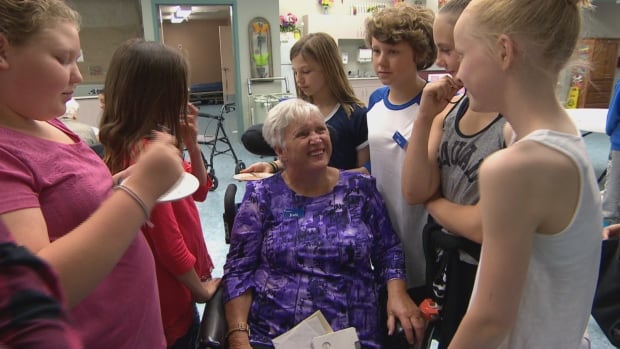
There are lots of innovative models for long-term care homes to ‘fly with’ and make culture change a reality. The Glebe Centre in Ottawa has chosen to ‘fly with Butterfly’ and the Centre is the first Home in Ottawa to implement this innovative model.
“Every resident comes into long-term care with a history of family, friends, work, passions, desires, likes and dislikes. Each has individual wants, needs and expectations. Many come into care with reluctance and apprehension. Long term care is often a necessity because of their physical or mental fragility.
So, what does the Butterfly Model involve and why is it different from other forms of care?
- It is all about BEING not DOING. It is about enabling and supporting those in care rather than passively caring for them. Doing things WITH the residents and NOT for them.
- We don’t DO Person-Centred care, we need to BE “Person-Centred.”
- The Butterfly Model is all about getting to know each resident. Understanding their previous life stories and connecting— using active listening skills and maintaining a positive view of the importance of everyone’s emotional life journey. It is about treating each resident more like a friend than a patient.
- Staff must be enthusiastic, have positive energy and be able to look at the world from the resident’s perspective.
- The physical space is different in this model. Who wants to live with grey, green or beige walls? Talk about institutional! The colours used on a Butterfly floor are bright, sunny, and happy. The walls are filled with murals and each resident door is a different colour and design.
Donna read about the Butterfly Model, watched the video and got excited thinking of how her 98-year old mother with dementia would flourish in this environment.
But when she saw a completed floor at The Glebe Centre and experienced the full impact of how this works, she was very impressed! It far exceeded her expectations. The sense of calm and soft music provides a peaceful setting. The place felt like home, safe and secure – a family atmosphere. The staff were relaxed, flexible, smiling and affectionate towards each other and the residents.
Many of you reading this article are starting to think about future care. Person-Centred Care is the way of the future. We have to make long-term-care a place where seniors go happily and not with dread and reluctance.”*
Let’s hope that other long-term care homes in Ontario ‘fly’ with an innovative model and pave the way for a happier future for their residents.
Please encourage the Ontario Government to bring culture change to its long-term care homes. Write to your MPP or to your City Councillor, or write a letter to the editor, or any other action that you think will help to promote a quality, dignified life for our seniors living in long-term care homes.
*Extract from the Glebe Centre Long-term Care Home and Abbotsford House 2020-2021 Donor Community Newsletter












